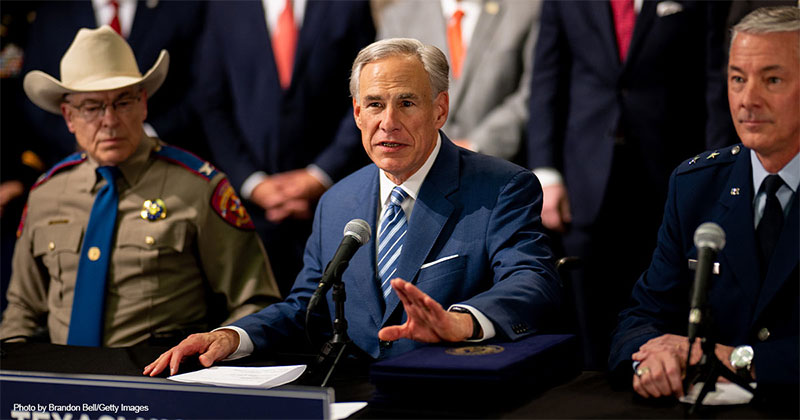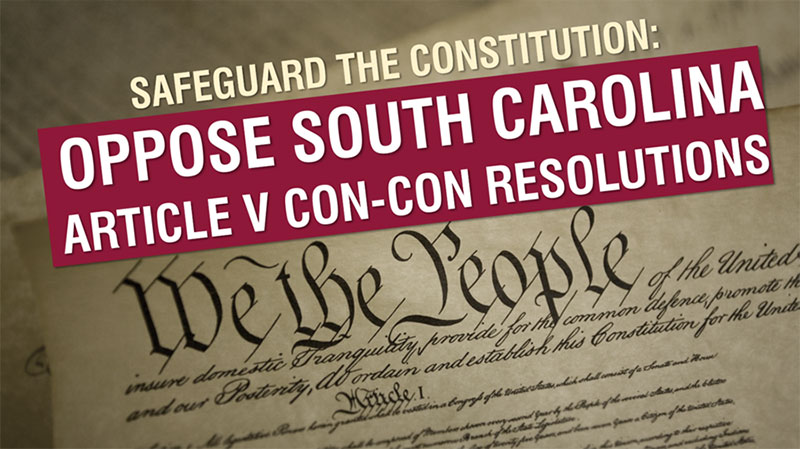- Leibniz and Calhoun: The Christian March of Progress and Postmillennial Truth
- A Seat at the Table, Not Just a Chair in the Room
- The Purpose of your Life -
- Concise Theology in Scripture
- Revisiting the Great Work of Medical Missionary Dr. Anne Livingston in Haiti
- Ukraine War Update September 22, 2025
- The Direction of American Religion
- Have You Heard of The REAL Political Spectrum?
- Bradley Pulls Out of October 7 Spartanburg County Republican Party Forum, Reaffirms Commitment to Voter-First Campaign
- Some Of Our Favorite Things
- U.S. Tomahawk Missiles and Ukraine
- American Religion by the Issues
- Justin Bradley: Conservative Reformer for State Senate
- The Battle for Pokrovsk
- Get US Out! of the USMCA
Records: SC Offered Scout Motors Far Sweeter Deal Compared to MS
- Details
- By Rick Brundrett - The Nerve

The $1 billion taxpayer-funded gift that S.C. lawmakers last year approved for the Scout Motors electric vehicle plant was seven times more than what officials in Mississippi, which lost out to South Carolina, were willing to offer in state grant funding through special legislation, records obtained by The Nerve show.
And, in addition to the vehicle assembly plant, Scout Motors, which German-based Volkswagen created in 2022, sought Mississippi incentives for a battery cell production “giga” factory, according to the company’s incentives wish list, known as a “request for proposal” (RFP), which The Nerve obtained earlier this month from the Mississippi Development Authority (MDA) under that state’s open-records law.
Laws for Thee but not for Me...
- Details
- By SC Freedom Caucus
Do you support the Second Amendment? Then you’ll need to read this.
There is a lot of information swirling around the “Constitutional Carry” bill passed by the SC House and recently amended by the SC Senate. But one change made by the Senate isn't getting the attention it deserves.
If this bill passes as is, members of the General Assembly will be exempt from punishment if they violate gun laws.
Scout Motors Threatens Legal Action Against The Nerve
- Details
- By Rick Brundrett - The Nerve

Scout Motors is threatening to take The Nerve to court if it publishes “confidential and proprietary” information contained in an incentives wish list that the Volkswagen company submitted to the state of Mississippi, which lost out to South Carolina for an electric vehicle assembly plant.
In a Jan. 24 formal notice of intent to take legal action, Jason Fortenberry, one of the Jackson, Miss., attorneys representing Scout Motors, warned The Nerve that the company will file a protective order petition in the Hinds County Chancery Court in Jackson by tomorrow unless The Nerve “withdraws or modifies” its request for the incentives wish list.
Biden's Ministry of Truth Coming to SC?
- Details
- By SC Freedom Caucus

There is a viral clip of an SC High School senior addressing her local School Board making the rounds on the internet. In it, a young woman steps to the microphone and publicly denounces her "conservative, Republican, Christian" father. She characterizes his deeply held convictions as "one-sided bigoted beliefs" and derides the “detrimental effect he has had on [her] life.”
The young lady admits she was "inspired” to speak out by her english teachers and that she couldn't have come to these conclusions without her teachers' support.
‘Stand with Texas’: Governors Back Lone Star State’s Self-Defense on Border
- Details
- By S.A. McCarthy - The Washington Stand

The governor of Texas is declaring his state has a right to self-defense against the “invasion” of unimpeded illegal immigration, and other red state governors are standing in solidarity. On Wednesday afternoon, Texas Governor Greg Abbott (R) issued a statement on the state’s constitutional right to self-defense in light of the Biden administration’s persistent negligence in securing the border. “The federal government has broken the compact between the United States and the States,” Abbott wrote. “The Executive Branch of the United States has a constitutional duty to enforce federal laws protecting States, including immigration laws on the books right now. President Biden has refused to enforce those laws and has even violated them.”
Far Left Democrat Judge Coming to SC?
- Details
- By SC Freedom Caucus
Another Black Eye on the Republican Supermajority
The way South Carolina selects judges is rife with corruption and conflicts of interests—lawyer legislators handpick the very judges they argue cases in front of and ballots are counted in secret by legislators to avoid on the record votes.
Sadly, time and time again, those judges are liberals who legislate from the bench despite the fact that Republicans hold supermajorities in both Chambers. Even more surprisingly, these judges are often spouses, immediate family members, or law partners of sitting legislators—or even former legislators themselves.
So who is the establishment’s top pic for judge this time? Former Democrat lawyer-legislator and former Democratic Party nominee for governor James Smith.
Bridge, Road Work in SC Still Moving Slowly with Gas-tax-hike Money
- Details
- By Rick Brundrett - The Nerve

In recently announcing his proposed nearly $41 billion total state budget for fiscal 2025, Gov. Henry McMaster recommended using a projected $500 million school-fund surplus for emergency bridge replacement and repairs.
“Many of these bridges are 60, 70 and even in excess of 80 years old and are crumbling before our eyes each day,” McMaster said in a Jan. 5 press release. “Too many have been closed, while others are in such a state of disrepair that the required restrictions render them useless for commercial trucking, school buses, or fire trucks needed to serve our state’s increasing population.”
SC House Passes Bill to Ban Childhood Gender Transitions!
- Details
- By South Carolina Freedom Caucus
But not before the RINOs get a beatdown from the grassroots.
The South Carolina House of Representatives passed the “Help, Not Harm Bill” today.
This bill bans genital mutilation surgery (also known as transgender surgery), puberty blockers, and hormone therapy for anyone under the age of 18.
The bill also prohibits state funds from being used directly or indirectly for gender transitions.
Freedom Caucus member SC Rep. Stewart Jones (R-Laurens) filed a bill to ban these harmful procedures that cause irrevocable injury over a year ago. Sadly, liberal House leadership didn’t give the bill a hearing and sat on this important legislation while kids were being harmed for over 13 months.
Eagle Forum Applauds Appeals Court Decision to Allow Alabama to Protect Vulnerable Children
- Details
- By Eagle Forum
Children in Alabama Should be Helped, Not Harmed by Irreversible Treatments
Eagle Forum, together with Alabama Eagle Forum, applauds the decision of the 11th Circuit Court of Appeals to lift the injunction against the Vulnerable Child Compassion and Protection (VCAP) Act and allow the law to go into effect pending a decision on the merits expected later this year.
“We are grateful for the decision by the 11th Circuit to allow Alabama to enforce protections for vulnerable children suffering from gender dysphoria. The so-called ‘treatments’ with puberty blockers and cross-sex hormones permanently alter the healthy bodies of children and impair their futures. The action by the Court yesterday will finally allow the VCAP law to go into effect after more than 18 months of delay,” said Eagle Forum President Kris Ullman.
Huge Win for Liberty! But It's Not Over...
- Details
- By SC Freedom Caucus
Yesterday, grassroots conservatives across SC won in a major way!

Earlier this week, establishment Republicans and Democrats attempted to ram through a major rules change to prohibit conservatives in the SC House of Representatives from being able to offer amendments on legislation in certain situations. The rule was straight out of the Nancy Pelosi playbook. Thankfully, we had just enough time to sound the alarm to grassroots leaders across the state.
Because of YOU we were able to stop the rule change! ... But only for now ...
SC Establishment Bringing Nancy Pelosi-Like Rules to SC
- Details
- By SC Freedom Caucus
If you thought the incumbent protection pledge was bad, you won't believe what the RINOs are trying to do now.
For those who don't know, the moderate establishment kicked out the 16 most conservative members of the Republican Caucus for refusing to sign a soviet-style loyalty pledge.
Listen to Glenn Beck discuss the issue HERE.
The pledge sought to silence members of the SC Freedom Caucus by prohibiting us from posting photos of the public voting board, endorsing more conservative challengers, or informing the citizens about how members of the House break their campaign promises.
South Carolina’s Income Tax Rate Is Expected to See Another Decrease in 2024
- Details
- By James Spurck, Publisher
The State’s Goal is to Reduce the Tax Rate by 0.1% until it reaches 6% from its original 7%

With South Carolina having the highest personal income tax rate in the Southeast and being the 12th highest in the nation, SC State Legislators and Governor Henry McMaster decided that it was time for an income tax cut.
In 2022, the state’s top tax rate was seven percent. That year the South Carolina Senate compromised from a desired 5.7% rate by passing along with the State House a new spending plan that would immediately lower 7% to 6.5 percent for the coming 2023 tax year. Beginning with 2024, over the next five years, it would reduce by 0.1 percent each year until it reached 6% in 2028.
Stop South Carolina Article V Con-Con Resolutions
- Details
- By The John Birch Society

URGENT; ACT NOW: South Carolina’s Article V Con-Con resolutions — S. 369, H. 3676 (BBA), S. 481, H.3895 (term limits), S. 391, H.4626, and H.4625 (delegate bills) — could be scheduled for hearings in their respective committees at any time, and at short notice. Contact your state representative and senator, and urge them to oppose these disastrous resolutions!
Members of the South Carolina General Assembly are seeking to pass a resolution applying to Congress to “call a Convention for proposing Amendments,” under Article V of the Constitution, otherwise known as a constitutional convention (Con-Con) or “convention of the states,” as some erroneously refer to it.
Nullify Unconstitutional Wars With South Carolina Bill H.4533
- Details
- By The John Birch Society

ACT NOW: South Carolina lawmakers are seeking to enact legislation nullifying unconstitutional federal deployments of the South Carolina National Guard.
House Bill 4533 (H.4533) is sponsored by Representative Thomas Beach (R-Piedmont). It would prevent combat deployments of the South Carolina National Guard by the federal government in the absence of a congressional declaration of war or another constitutional reason in accordance with Article I, Section 8, Clauses 11 and 15, of the U.S. Constitution.
What S.C. Officials Don't 'Really, Really' Want You to Know About Incentives
- Details
- By Rick Brundrett - The Nerve
“Tell me what you want, what you really, really want.”
It’s not entirely clear if Gov. Henry McMaster, 76, is a devoted fan of the 1990s British pop group, Spice Girls, but he gave a short, modified version of their 1996 hit song, “Wannabe,” at a recent meeting of the Greater Cayce-West Columbia Chamber of Commerce, according to a story published by the South Carolina Daily Gazette.
The Republican McMaster used the song’s lyrics to describe the state’s position on providing taxpayer-funded training to companies seeking to locate or expand in South Carolina – which is commonly part of large incentives deals and can total in the millions of dollars, as The Nerve has pointed out over the years.
Supreme Court Justice Defends Secretive Disciplinary System
- Details
- By Rick Brundrett - The Nerve

At a recent S.C. House special committee hearing on judicial reform, Supreme Court Justice John Kittredge touted the “almost non-existent” number of ethics violations committed by state judges.
“Each week, members of the judiciary receive a report of all the ethical violations of judges around the country, and regrettably, it’s a pretty long list,” Kittredge said at the Nov. 7 hearing, the first of two public meetings held so far by the committee.
“But what you don’t see on that long list for every other state in the country,” Kittredge, 67, of Greenville, continued, “is you don’t see reports of South Carolina judges being reprimanded, being sanctioned, being removed.”
- Electric bus maker required to do less for taxpayer-backed incentives
- Ohio Legislators & Leaders to Fight Issue 1
- Support the South Carolina Sovereignty Act, H.3539
- Sick: Ohio Issue 1 Ads Present a False, ‘Pro-Abortion’ Jesus
- Top Establishment Republican Leader Violates Ethics Laws? Case Referred to 5th Circuit Solicitor's Office

















